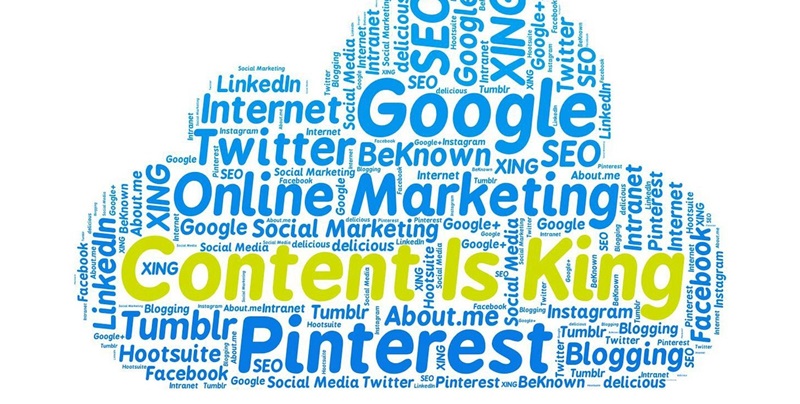In today’s digital age, where information overload has become the norm, authenticity has emerged as a key factor in effective content marketing. As consumers become more adept at filtering out the noise, it is crucial for businesses to develop content that is genuine, relatable, and trustworthy. One powerful tool in achieving this is through the use of testimonials, which lend credibility to a product or service. In this article, we explore the importance of authenticity, the role of testimonials, the impact of honesty, and the keys to building a strong readership.
The Importance of Authenticity in Content Marketing
In a world saturated with generic advertising messages, authenticity stands out as a breath of fresh air. Authentic content demonstrates originality, sincerity, and integrity. It speaks to the core values of the audience, forming a connection that traditional marketing techniques often fail to achieve. By incorporating authentic content into your marketing strategy, you can establish trust and build a loyal customer base.
The Role of Testimonials in Establishing Credibility
Testimonials provide a unique avenue for creating authenticity in your content marketing. When potential customers read or hear about others’ positive experiences with your product or service, it boosts credibility and fosters trust. Positive testimonials showcase the real-life benefits and outcomes, giving your audience a sense of confidence in their purchasing decision.
How Testimonials Differentiate a Product and Make It Special
One of the key advantages of testimonials is their ability to highlight what sets your product or service apart from the competition. By featuring testimonials that emphasize unique features or exceptional customer service, you can position your offering as unparalleled in the market. Testimonials provide the proof and reassurance that your potential customers need to choose your brand over others.
The Necessity of Always Telling the Truth in Content Marketing
While the temptation to embellish or exaggerate may be strong, honesty should be the guiding principle in content marketing. Lying about product attributes or making false claims not only damages your reputation but can also lead to legal consequences. By staying truthful and transparent, you establish your brand as ethical and trustworthy, reinforcing the credibility of your marketing efforts.
The Dangers of Lying About a Product or Promotion
Engaging in deceptive practices may yield short-term gains, but the long-term repercussions can be devastating. In an era where information spreads rapidly through social media and online review platforms, any dishonesty can be quickly exposed. Once trust is lost, rebuilding it becomes an incredibly challenging task. Disgruntled customers and negative word-of-mouth can tarnish your brand reputation, making it difficult to regain consumer confidence.
The Value of Honesty When Promoting a Product
By always speaking the truth about the product you are promoting, you showcase your respect for your audience and their intelligence. Rather than relying on false claims or exaggerated language, focus on highlighting genuine benefits and addressing potential concerns honestly. By presenting an authentic and accurate depiction of your offering, you will attract customers who appreciate your transparency and sincerity.
The Effectiveness of Truthful Content in Making Something Appealing
Being truthful does not mean neglecting the power of persuasion. You don’t have to resort to lies or deceit to make something sound appealing. Instead, focus on showcasing the unique selling points, features, and benefits in an authentic and compelling manner. By presenting the truth in a captivating way, you can engage your audience and inspire them to take action without compromising your integrity.
Developing Content That Resonates with a Wide Audience
One of the keys to successful content marketing is the ability to create content that resonates with your target audience. Authenticity plays a crucial role in this process. By understanding your audience’s needs, desires, and pain points, you can develop content that speaks directly to them. Incorporating real-life stories, personal anecdotes, and relatable experiences into your content can create a genuine connection with your readers, making your messaging more impactful.
The Negative Impact of Cheesy Content on the Internet
In the quest for authenticity, it is important to steer clear of cheesy content. Every day, the internet is flooded with clickbait-y, insincere content that fails to resonate with readers. Such content not only fails to engage the audience but can also harm your brand’s reputation. By avoiding clichés, sensationalism, and shallow messages, you can truly stand out in a sea of generic content.
Building a Strong Readership Through Genuine and Relatable Content
When you are genuine with your readers, you build a strong and loyal readership. By consistently delivering authentic and valuable content, you create a connection that goes beyond a mere transactional relationship. Your audience will appreciate and trust your brand’s voice, leading to increased engagement, loyalty, and advocacy. Building a community of genuine supporters adds significant value to your content marketing efforts.
In an age of information overload, the importance of authenticity in content marketing cannot be overstated. Through the use of testimonials, crafting truthful content, and developing relatable messaging, businesses can establish credibility, differentiate their offerings, and build a strong readership. By staying true to your brand values and consistently delivering authentic content, you not only engage your audience but also foster trust, loyalty, and long-term success.

